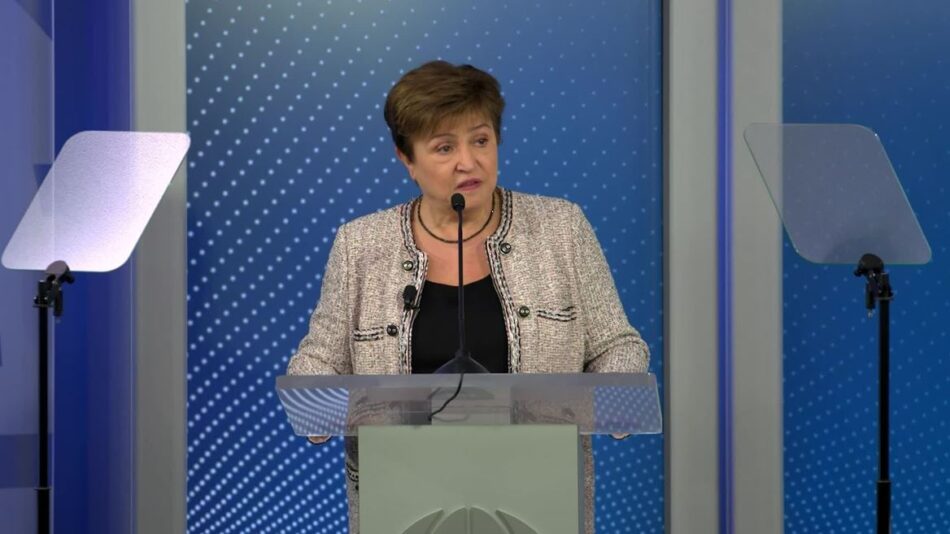IMF Georgieva Global Growth / AI

IMF
World leaders need to make positive changes and avoid protectionism to ensure that global growth speeds up during a time of divergence and in the face of fragmentation, International Monetary Fund chief Kristalina Georgieva said Thursday.
“Overall, based on the data, it is tempting to breathe a sigh of relief. We have avoided the global recession and a period of stagflation. Some have predicted it, it has not happened, but there are still plenty of things to worry about. The global environment has become more challenging,” she told an audience at the Atlantic Council in Washington, DC.
“The scars of the pandemic are still with us. The global output loss since 2020 is around $3.3 trillion, with the cost disproportionately falling on the most vulnerable countries, and we see a growing divergence within and across country groups,” the Fund’s Managing Director warned.
Georgieva said there are policy choices this decade that could lead to a turbulent, tepid or transformational ‘20s.
“Our medium-term outlook for global growth remains well below its historical average. It is just, just slightly above 3%. Without the course correction, we are indeed heading for the tepid 20s. A sluggish and disappointing decade. And at this junction, policymakers face a choice: They can avoid difficult decisions and try to muddle through with less than good policies. Or they can make another choice. They can follow Dean Acheson’s advice and choose good policies. Deal decisively with inflation and debt. And promote economic transformation to boost productivity, inclusion and sustainable growth.”
The biggest issue facing the global economy is how to deal with the advent of artificial intelligence Georgieva said in her speech ahead of the Spring Meetings of the IMF and World Bank.
“Artificial intelligence is likely to dramatically accelerate the fourth industrial revolution. This brings huge potential benefits, but also risks. A recent IMF study shows that artificial intelligence could affect up to 40% of jobs across the world, and 60% in advanced economies. It could enhance workers productivity, but also threatens some jobs. Investing in digital infrastructure and skills, as well as in strong social safety nets, will determine the pace of AI adoption and its impact on productivity.”
A full transcript of the event and IMF work and studies on climate change can be found Here..





